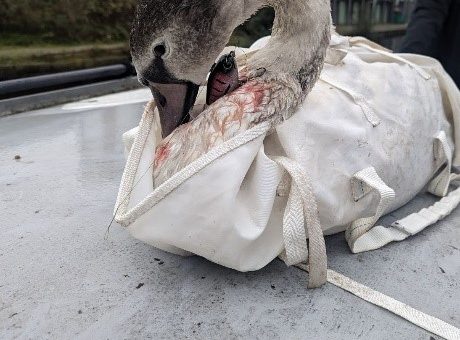Fur coats, piano keys, crocodile loafers. What do they have in common? Each of these items require an endangered animal to be mercilessly killed for a luxury we can live without.
The fashion business alone uses 1.4 billion animals per year to provide us with just leather and the fashion industry is not the only business sector that capitalises from animal poaching. The medical field also pays a significantly large part.
Around the world poaching is a huge issue but not all for the same reason, many for the illegal import of materials and many for the actual killing of the animals. The issue rises in the places that house the more extoic animals, such as Africa and Asia.
It goes without saying cows, sheep and chicken are killed in the tonnes in the UK but this is legal and regulated. In countries with a lesser government influence animal poaching is a huge and out of control issue with rhinos declining massively, now to the point they are close to extinction.
Rhinos have been in danger from poaching for a very long time due to the sheer fact of how profitable the materials they provide are. Rhino horns in traditional Chinese medicine are regarded as having a plethora of health benefits and are even said to be able to cure cancer.
Although there is no scientific evidence to prove these claims, Rhino horns are made out of keratin, the same as what mine and your fingernails are made out of. Despite the rhinos horns medical benefits being proven absolutely useless at least one rhino is killed every 12 hours. Sadly this issue is only projected to get worse for the rhinos with the poaching of rhinos expected to rise an astounding 356% by 2030.
Poaching is not a global issue despite most of the world benefiting from the illegal business one way or another. The issue rises significantly in Africa and Asia as they are home to some of the most widely poached animals such as rhinos, tigers, elephants and much more.
And yet despite the problem being so large in these continents only five countries keep records of the poaching that takes place. Of course this poses a problem for conservationists and park rangers who want to preserve the animal kingdom but with the data being so sparse it makes their job a tonne harder.
If I told you wildlife trafficking was up there with being just as lucrative as drug smuggling, would you believe me? Nope? In that case, take a seat. The illegal wildlife smuggling business is the second most lucrative crime globally with an estimated yearly value of between $73 and $216 billion. Yes, billion.
Of course drug smuggling takes the top stop with a yearly value of $426 billion. These numbers really put into perspective how large the poaching business really is.
Poaching is not just responsible for the death of animals but now also responsible for the deaths of those who want to protect our animals. The rangers protect the parks which are the habitats to the animals that are in danger from the criminal poachers. Over 100 innocent poachers are killed per year in the line of duty.
To think we live in a world where protecting vulnerable animals will get you killed is heart wrenching and also a monumental issue in itself. This equates to an average of around two poachers a week being killed.
Of course we are all aware of elephants, tigers, rhinos and even sharks being poached but do you know of the Pangolin.
The Pangolin is the world’s most poached animal and yet we are not aware of what it is. The Pangolin is a small mammal found in Africa and Asia and is covered in overlapping scales.
They survive off a diet of mainly ants and termites. Poached mainly for their bush meat and scales there is a particularly large market for the Pangolin for their leather products which are transformed into bags and boots, but also the medicine market.
Similarly to the rhino horn the Pangolin scale is also thought to treat a number of illnesses albeit the huge rise in Pangolin scales being trafficked. They are actually believed to treat 15 medical conditions such as rheumatism, mental illness and stomach ulcers.
The department of Biological sciences in Nigeria did a study on the Pangolin scales have medical benefits and their research found that the Pangolin does not hold any medical benefits and orthodox medicine , such as antibiotics, were more effective at treating illness such as rheumatism and stomach ulcers.
As it currently stands, animal poaching is a huge global issue that is only getting worse. Without education on such matters in 20 years a rhino, a tiger and an elephant will be a distant memory.



